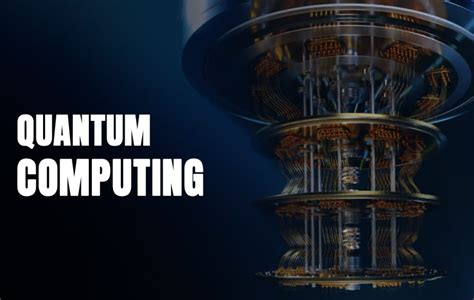Quantum computing is rapidly emerging as a transformative force in the field of information processing, promising to revolutionize the way we solve complex problems. Unlike classical computing, which relies on bits to represent data as 0s and 1s, quantum computing leverages qubits that can exist in multiple states simultaneously, enabling unprecedented computational power. This technology is not just a theoretical concept; recent breakthroughs have brought it closer to practical application, with profound implications for industries ranging from healthcare to finance. In this article, we will explore the fundamentals of quantum computing, its key differences from classical computing, and its potential to reshape the future
Let’s explore this topic in detail with tirfblog.com
1. Overview of Quantum Computing Technology
Quantum computing marks a substantial advancement in technology, introducing a revolutionary method for processing information. Its foundation lies in quantum mechanics, the foundational theory governing the behavior of particles at the most minuscule levels. Unlike classical computers, which rely on bits as the smallest unit of data, limited to values of 0 or 1, quantum computers employ qubits. These qubits possess the unique ability to exist in multiple states simultaneously, leveraging properties such as superposition and entanglement. This capability allows them to handle an immense amount of information concurrently.
Quantum computers possess the ability to tackle problems that are beyond the reach of traditional computers. These include intricate simulations, breaking cryptographic codes, and finding optimal solutions to complex challenges. While still in their infancy, quantum computing is progressing rapidly, with major tech companies and research centers globally striving to create more powerful quantum processors. As these technologies advance, they hold the potential to unlock unprecedented computational power, revolutionizing fields like artificial intelligence, drug development, and materials science.

2. Key Differences Between Classical and Quantum Computing
Classical and quantum computing diverge significantly in their information processing methods. Classical computers rely on bits, each representing either a 0 or a 1, as their fundamental data unit. These bits are manipulated through logic gates in a linear fashion, imposing limitations on the speed and intricacy of calculations. While this conventional method excels in everyday tasks such as word processing and internet browsing, it faces challenges when confronted with complex problems demanding immense computational resources.
Unlike classical computers, quantum computing harnesses qubits, which possess the unique ability to represent 0, 1, or both simultaneously through superposition. This parallel processing capability grants quantum computers exponentially greater processing power by allowing them to perform numerous calculations concurrently. Furthermore, quantum entanglement, a phenomenon where interconnected qubits influence each other instantaneously regardless of distance, amplifies their computational prowess. These features enable quantum computers to tackle problems intractable for traditional computers, including molecular simulations for drug development and optimization of complex logistical operations. The fundamental distinction lies in quantum computing’s parallel processing approach, contrasting with the sequential processing nature of classical computing.

3. Current Breakthroughs and Innovations in Quantum Computing
Quantum computing has witnessed remarkable progress in recent years, pushing the technology closer to real-world applications. This advancement is largely due to the development of more stable and scalable quantum processors. Companies like IBM, Google, and Microsoft have captured attention with their quantum chips, which exhibit exceptional computational capabilities. Notably, Google’s Sycamore processor achieved quantum supremacy in 2019, successfully solving a complex problem at a speed exceeding that of the world’s most powerful supercomputers.
Another major innovation is the improvement of quantum error correction techniques. Quantum systems are highly susceptible to errors caused by environmental interference, but recent advancements have resulted in more effective methods for detecting and correcting these errors. This progress brings us closer to achieving reliable, fault-tolerant quantum computing. Moreover, new algorithms specifically designed for quantum computers have been developed, enabling them to address problems in fields like cryptography, materials science, and artificial intelligence more efficiently than classical computers.
Moreover, strides have been made in quantum communication and networking, with researchers investigating quantum entanglement to establish secure communication channels. These developments pave the way for a quantum internet, which has the potential to revolutionize data transmission and enhance cybersecurity. As these advancements progress, the potential of quantum computing as a revolutionary technology becomes increasingly apparent, poised to reshape industries and scientific research on a global scale.

4. Potential Applications and Impact on Various Industries
Quantum computing has the potential to transform numerous industries by offering solutions to problems that are currently insurmountable for traditional computers. In the pharmaceutical sector, quantum computing could expedite drug discovery by simulating molecular interactions at an unprecedented scale, leading to the creation of novel medications and personalized therapies. In finance, quantum algorithms can optimize investment portfolios, manage risk more efficiently, and enhance the speed and accuracy of sophisticated financial models.
Quantum computing is poised to reshape cryptography, introducing both threats and opportunities for security protocols. While it has the potential to crack existing encryption methods, it also presents the chance to develop unbreakable codes through quantum key distribution, guaranteeing secure communication. Furthermore, the logistics and supply chain industries are likely to benefit from quantum computing’s power to solve intricate optimization problems, leading to improved efficiency and cost reduction.
Furthermore, quantum computing holds the potential to revolutionize artificial intelligence. By enabling more sophisticated machine learning algorithms and enhancing data processing capabilities, quantum computing could drive breakthroughs in autonomous systems, predictive analytics, and natural language processing. As quantum technology continues to evolve, its widespread adoption across diverse industries is likely to transform our approach to problem-solving and innovation, leading to unprecedented advancements.
5. Challenges and Future Prospects in Quantum Information Processing
While quantum computing holds immense promise, its widespread adoption is hampered by significant challenges. One of the most formidable obstacles is quantum decoherence. This phenomenon arises when the fragile quantum states of qubits are easily disrupted by their surroundings, introducing errors into computations. To preserve quantum coherence and mitigate these errors, quantum computers demand extremely controlled environments, often requiring ultra-low temperatures. This stringent requirement contributes to the complexity and high cost of building and maintaining these machines.
Quantum error correction poses a significant challenge. While progress has been made, the development of efficient and scalable error correction codes remains a critical obstacle. Without reliable error correction, the potential of quantum computers to perform large-scale, complex calculations will be restricted.
Scalability poses a significant challenge. Present-day quantum processors possess a limited number of qubits, insufficient for the majority of practical applications. Researchers are actively pursuing methods to expand the size of quantum systems while preserving qubit coherence and connectivity, a daunting engineering task.
Looking ahead, the future of quantum computing is bright, with continued investment and research driving rapid advancements. As these challenges are addressed, quantum information processing could revolutionize various industries, leading to breakthroughs in fields ranging from cryptography and artificial intelligence to materials science and beyond. The journey to practical quantum computing may be long, but its transformative potential makes it a challen
Quantum computing represents a paradigm shift in information processing, with the potential to revolutionize industries and solve problems that are currently beyond the reach of classical computers. While significant challenges remain, ongoing breakthroughs in quantum technology are steadily paving the way for its practical application. As research continues and the technology matures, quantum computing is poised to become a cornerstone of future innovation, driving progress across diverse fields and transforming the way we approach complex computational tasks.
tirfblog.com

